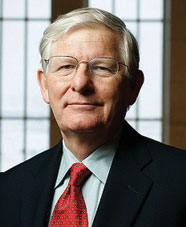
It began as a major compromise at the drafting of the Constitution. Some people wanted to elect the president by popular vote. Other people, mainly from smaller states, didn't want a president elected by popular vote because the large states would dominate.
The Constitutional Convention approved the Electoral College on September 6, 1787. The term Electoral College was not written into federal law until 1845. The number of electors equals the number of each state's representatives plus its two senators. Since 1964 we've had 538 electors.
Two states, Maine and Nebraska, have proportional representation. Whoever wins the congressional district wins the electoral vote.
In presidential elections, voters vote for a slate of electors, who meet in the state capitals the Monday after the second Wednesday in December to cast their votes on separate ballots for president and vice president. Their votes are sent by registered mail to the U.S. Senate, which certifies them.
It's arcane; it needs to be changed.
I used to work for Hubert Humphrey. He came within 1 percent of winning the 1968 election, but the outcome of the election went overwhelmingly for Nixon in terms of the Electoral College.
Nixon got 301 electoral votes, Humphrey got 191. You need 270 to win. But Humphrey lost by 511,000 popular votes, which was less than 1 percent of the total. This led to an amendment that was proposed to change the Electoral College.
The House of Representatives passed a change that would correct the disparity between the popular vote and the electoral vote, but the proposal failed in the Senate.
It's never come up since.
I did an analysis of the close and contested 2000 election. Bush would have won if electoral votes had been counted by proportional representation. After 2000, however, outrage petered out quickly, I think because people realized it was hopeless to change the Constitution.
Practically, we're not going to amend the Constitution-it's too hard.
If I had the power, I certainly would change it. My solution, to make it more reflective of the views of more Americans, is to make it more like Maine and Nebraska. I would change it to a proportional representation in all of the states.
I think that then the election would not depend primarily on a handful of states, which is where the battle was this time. With proportional representation, the candidates also would have to campaign vigorously in populous states.
I would not change it to a popular vote because then the campaign would only be in three or four states. We have many more small states than we do large states, so a popular vote approach would never pass because of what happened at the Constitutional Convention where the small states didn't allow it.
The more things change . . .